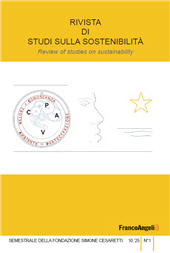Shadow economy dynamics : a comprehensive assessment of tax compliance strategies
125-141 p.
The study aims to conduct an in-depth analysis of strategies to improve tax compliance in a dynamic shadow economy. The study addressed the problem of the shadow economy, which poses a serious threat to the economies of both developed and developing countries. The shadow economy includes illegal and informal activities, such as tax evasion, illegal employment and corruption, which result in significant losses for public finances. In countries with high levels of shadow economy, budgets face deficits, forcing governments to raise taxes or borrow money, slowing economic growth. The study also addressed the impact of cryptocurrencies on the shadow economy. The anonymity of cryptocurrency transactions hinders tax liability tracking, thus creating additional challenges for tax authorities. The study employed data on the countries with the largest number of cryptocurrency holders and analysed their impact on financial stability. Informal social networks and communities are substantial in shaping tax behaviour. In
countries with a high level of social cohesion, taxpayers tend to follow official rules, while in countries with low trust in government institutions, informal networks can facilitate tax evasion. The study cited examples of successful tax legislation strategies from various countries, such as Estonia, Germany and Australia, and provided recommendations for optimising tax policy in Azerbaijan. These recommendations include increasing transparency, simplifying tax administration, fighting corruption, reducing the tax burden and encouraging legal economic activity. The successful implementation of the proposed measures could significantly reduce the shadow economy and increase tax revenues to the Azerbaijani budget. [Publisher's text]
Forma parte de
Rivista di studi sulla sostenibilità : 10, 1, 2025-
Artículos del mismo número (disponibles individualmente)
-
Información
Código DOI: 10.3280/riss2025oa19560
ISSN: 2239-1959
KEYWORDS
- financial regulation, transparency of transactions, informal networks, fiscal risks, digital currency


